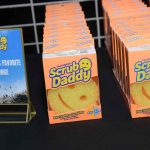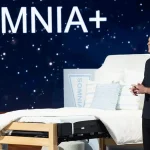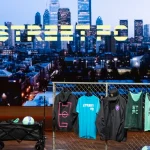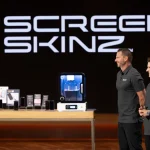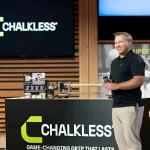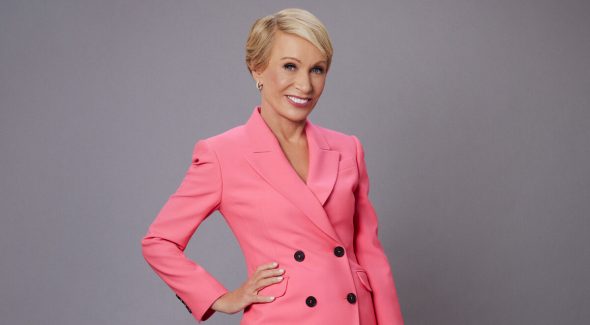
Highlights
- Just like every other Shark, Barbara Corcoran brings in her unique business expertise to Shark Tank. She’s the real estate mogul who’s turned bold instincts into multi-million-dollar wins.
- Barbara’s bold and confident approach, alongside having a sharp eye for lucrative businesses, has enabled her to lock in some great deals in the show.
- Some of the brands Barbara has invested in include Pipcorn, Daisy Cakes, and Grace and Lace.
Every judge or Shark on Shark Tank brings something unique based on their area of expertise, the connections they possess, and the business deals they’ve made in the past.
- Mark Cuban hails from a technology & sales background.
- Lori Greiner is famous as the “QVC Queen.”
- Daymond John holds solid knowledge of the fashion world.
- Kevin O’Leary has achieved success as a Venture Capitalist.
- Robert Herjavec is a champion in the Internet security software field.
- Barbara Corcoran is a real estate mogul.
Barbara Corcoran’s Winning Investment Strategy
Barbara Corcoran isn’t the Shark who invests in the most deals, but she might just be the one who squeezes the most value out of each one.
She has invested in over 80 businesses since the first season of Shark Tank, handpicking entrepreneurs with a mix of grit, creativity, and adaptability.
Barbara says to bet on the person, not just the product. She always says she’s less concerned with flawless business plans and more focused on founders who can pivot, problem-solve, and outwork the competition.
Quality over quantity is another cornerstone of her strategy. While some Sharks spread their investments widely, Barbara targets ideas she can personally help scale, often using her marketing savvy and real estate background to open doors.
Barbara is also known for jumping in when other Sharks hesitate, trusting her gut even if the numbers aren’t perfect on day one.
It’s this combination of instinct, selectivity, and founder-focused investing that’s led to blockbuster wins like The Comfy’s $468 million in sales and Cousins Maine Lobster’s $50 million empire.
Barbara Corcoran’s Biggest Deals on Shark Tank That Paid Off Big
If we talk particularly about Barbara Corcoran, to date, she has made more than 80 investments. The number may seem small, but if you look into the nature of these businesses, you will realize that Corcoran has always preferred quality over quantity.
Here’s a detailed elaboration of the biggest deals made by Barbara Corcoran that went from the Shark Tank stage to nationwide success.
Pipcorn – The Snack That Popped into Millions in Sales
Two siblings from Brooklyn, New York, Jeff and Jennifer Martin, came up with their product, Pipcorn, seeking an investment of $200K for 10% of equity.
Quick Facts
- Founders: Jeff & Jennifer Martin
- Investment Asked: $200K for 10% equity
- Product: Mini heirloom popcorn that doesn’t stick to teeth
- Sharks Interested: Barbara Corcoran, Robert Herjavec
- Outcome: Barbara invested $200K for 10% + 10% future distributions
- Reported Sales: $18+ million since Shark Tank appearance
- Notable Achievements: Nationwide distribution in 4,000+ stores, including Whole Foods and Kroger
The founders presented it as a natural and delicious snack that was better than regular popcorn, which sticks to the teeth; both of them started convincing the Sharks that their product was different from the rest.
Barbara Corcoran agreed for $200K for a 10% equity stake, mentioning one condition, i.e., her fixed share of 10% of any distributions made in the future.
Next in line was Robert Herjavec, who also agreed to the Martins’ offer of $200K for 10%.
Listening to both of their offers, Kevin O’Leary told them that both of them were “idiots” even to consider investing in the company, as he felt there was not much scope for it to generate business in the coming years.
Nevertheless, it seemed they had already made up their minds as they picked Barbara over Robert.
What’s the current state of the business?
With a nationwide reach to over 4000 retailers, including Whole Foods, The Fresh Market, Sprouts, Kroger, etc., the company has sold over seven and a half million bags of Pipcorn.
When it comes to the sales, it has made over $18 million ever since its appearance on Shark Tank. This deal reflected that Barbara Corcoran’s move was smart, and definitely not “stupid.”
The Comfy – How a $50K Bet Became a $468 Million Success
Brian and Michael Speciale, two brothers, came up with their product, The Original Comfy, seeking $50K for 20% equity.
Quick Facts
- Founders: Brian & Michael Speciale
- Investment Asked: $50,000 for 20% equity
- Product: Oversized wearable blanket with reversible design
- Sharks Interested: Barbara Corcoran, Robert Herjavec
- Outcome: Barbara invested $50K for 30% equity
- Reported Sales: $468M in sales in 3 years
- Notable Achievements: Created the “wearable blanket” trend, a viral holiday gift hit
The founders started their pitch in the backdrop of the Holiday season, demonstrating that Comfy is a blanket cum sweatshirt perfect for lounging anywhere, can be worn in a reversible manner, and would help people stay warm.
While the Sharks enjoyed the creative storytelling of the two brothers during their pitch, the idea of a completely new company with no sales at all made them take a step back from making the investment. But of course, there were some who showed interest.
Robert Herjavec made the first offer for $50K at 50% equity. But obviously that wasn’t the only offer.
Barbara Corcoran hopped in and proposed an offer of $50K for 30% equity. She further said that she could help them gain the required traction online owing to her considerable presence on the medium.
Hearing this, the brothers made failed attempts at negotiations and eventually agreed to her offer.
What’s the current state of the business?
The deal turned out to be a massive success for Barbara as the sales rose to $468 million in three years.
Cousins Maine Lobster – From a Single Truck to a $50M Seafood Empire
Seeking $55K for a 5% stake in their company, Jim Tselikis and Sabin Lomac, a cousin-entrepreneur duo, came up with Cousins Maine Lobster.
Quick Facts
- Founders: Jim Tselikis & Sabin Lomac
- Investment Asked: $55,000 for 5% equity
- Product: Food truck serving fresh Maine lobster in Southern California
- Sharks Interested: Barbara Corcoran, Robert Herjavec
- Outcome: Barbara invested $55K for 15% equity
- Reported Sales: Over $50 million
- Notable Achievements: Expanded from 1 food truck to 29, 21 franchises, and 10 restaurants
With their brand, the founders bring the Maine Lobster experience to Southern California using their gourmet lobster shack on wheels.
Highlighting that they bring their lobsters from shores to doors within 24 hours, they called upon the Sharks to join their family business by helping them get another truck and becoming the third cousin.
The negotiations soon began with a little bit of arguing between the Sharks. The cousins revealed that at the moment they have one truck and have generated $150K sales in two months.
Unsatisfied with answers about the economics of the business, Mark Cuban stepped out, followed by Daymond John and Kevin O’Leary.
However, Robert Herjavec offered $55K for a 25% equity stake. Next was Barbara, who made her offer at $55K for 17%.
After some discussions, Robert marked himself out. So, the entrepreneur duo asked Barbara if she could come down to 12%, to which she countered with 15%.
What’s the current state of the business?
The deal turned out to be a massive success for Barbara as the company expanded its horizons from one food truck to 29 food trucks.
Additionally, they have grown immensely with 21 franchises, 10 restaurants, and one international venture in Taiwan. The sales are impressive as well with a huge figure of over $50 million.
Key Takeaways from Barbara Corcoran’s Biggest Deals
Sometimes, it’s better to have a different opinion than what the majority has. Time and again, Barbara Corcoran has shown through her deals that if you want to grow successful in the business world, you ought to have a mind of your own.
Every investment mentioned in the blog above reflects her nose for identifying real talent. She invested when the others hesitated.
Another key takeaway from each of her investment deals is that quality is always better than quantity.
Although she may be one of those Sharks who have invested the least in the show’s history of 16 years, she has made enough money out of it owing to her nuanced business acumen.
Be it Daisy Cakes, Grace and Lace, or Pipcorn, the smallest of businesses that came in Shark Tank have now transformed themselves into multi-million dollar companies.
References
1. How Shark Tank’s Grace & Lace Turned Tragedy Into Success, Apple Podcasts Preview
2. Jenn Martin, Forbes
https://www.forbes.com/profile/jen-martin/
3. Pipcorn: Jennifer and Jeff Martin, NPR
https://www.npr.org/2021/04/23/990192508/pipcorn-jennifer-and-jeff-martin
4. ‘Shark Tank’ success story: How lobster-truck guys turned $20,000 into $20 million, CNBC



